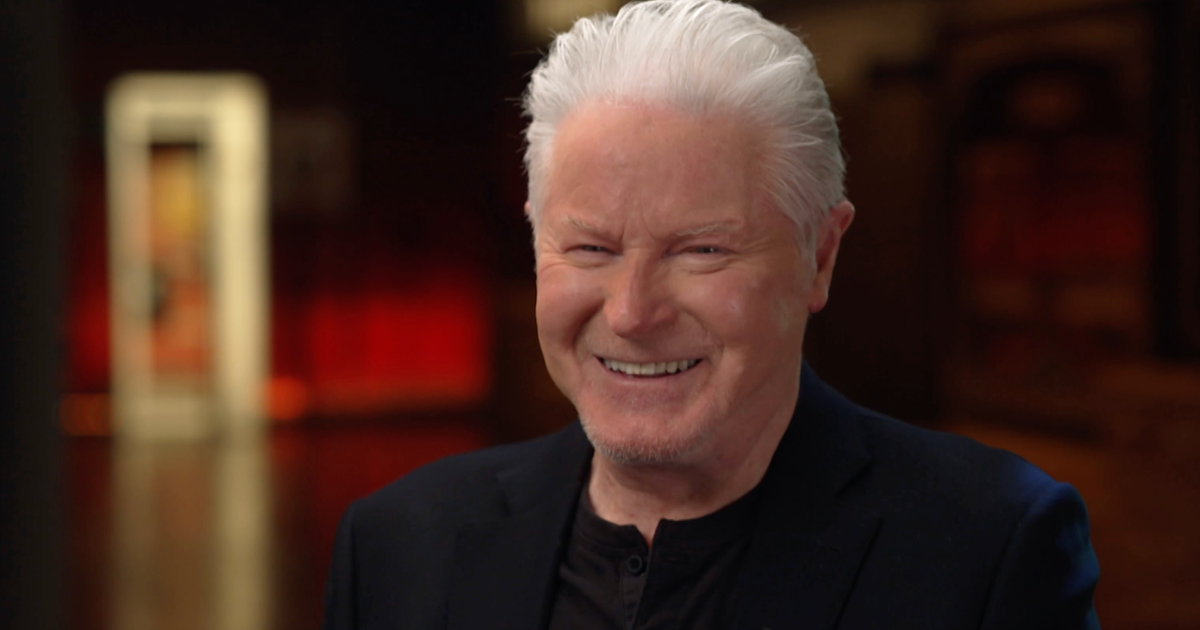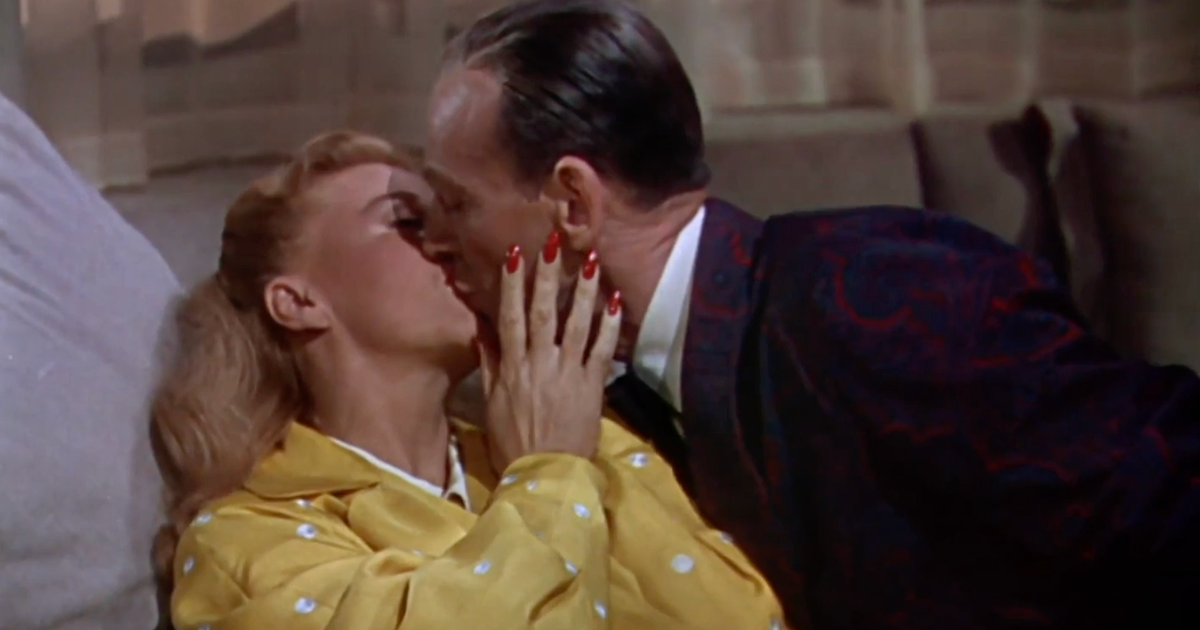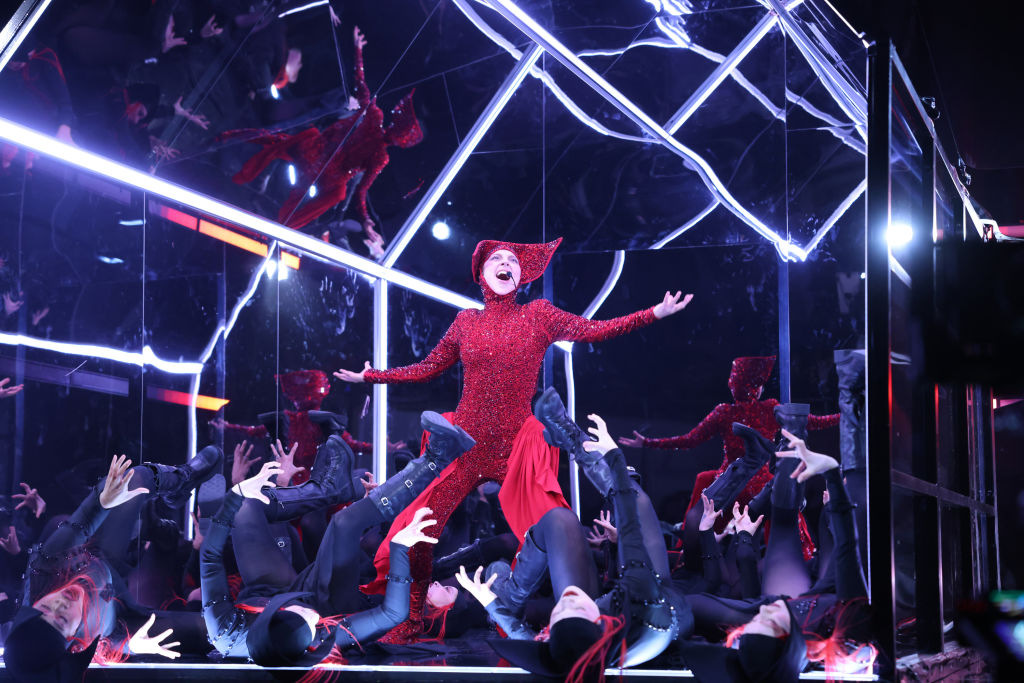Annie Lennox Gets On A Soapbox
Annie Lennox has sold 78 million albums in the past 25 years, has won four Grammys and even an Academy Award.
But the gold and platinum records she has just put up on her walls (they were lying around on the floor until recently) aren't so much trophies as they are links to the life she has lead while making them.
"Each one of these discs, they're all places and musicians and studios and late nights and terrible despair and terrible ecstasy," she told CBS News correspondent Mark Phillips.
Despair and ecstasy, and everything in-between … could be the title of the Annie Lennox songbook - only big themes will do for an artist considered the thinking person's rock star.
Famous for her 1980s hit with the Eurythmics, "Sweet Dreams," Lennox makes a grand re-entrance into the limelight with her fourth solo album, "Songs of Mass Destruction." It's not an accidental title.
The songs aren't overtly preachy, except for maybe one called "Sing," about the scourge of the HIV/AIDS pandemic in Africa.
Normally she takes a more subtle, indirect approach to politics and social issues, but Lennox admits her popularity gives her the soapbox from which she can promote the humanitarian causes she believes in.
"In a way I use my music as a kind of vehicle and platform from a broader base where I can talk about these issues," she said. "Because I think they are immensely important. And why wouldn't people want to know what an artist thinks about, you know, issues that are of incredible relevance to our present day life?
"I've always been a thinker. I've been an over-thinker probably, I'm always analyzing things. And I find it so fascinating, you know, this consciousness - what is intelligence? And what is creativity?"
Questioning the world and her place in it was something she was conscious of from the beginning. The working-class, only child of a baker and a boilermaker from Aberdeen, Scotland, took some time to find the path that would lead to fame and fortune.
Early on, she showed some talent for music, but not for academics.
"I grew up feeling always that I was not intelligent," Lennox said. "Because I went to an academic school where I realized I had more of an artistic bent. And it left me with a little bit of an inferiority complex. Because I thought I'm not bright. For some reason I really sucked at math, and still do."
She got into a London music academy, dropped out when she found it too restricting, and drifted around until 1980 when she teamed up with another struggling musician, Dave Stewart, and something happened.
"We found something that was a particular sound, a particular style, and that was really thrilling in a way," she said. "Because I think that is the journey as a creative artist, to find something authentic and identifiable."
Lennox and Stewart became the Eurythmics, a pioneering duo that pushed the envelope of electronic rock and the developing new medium of music videos.
In 1983 they released "Sweet Dreams," a song whose title summed up their own lives and would make them world-wide stars. They recorded 8 albums in eight years, but Lennox then decided to follow her own sweet dreams, and went solo.
"I don't believe in standing still," she said. "I don't believe in finding a formula that works commercially and then you do the same thing again because, you know, it worked the last time: 'We'll do it again.' That's really boring for me. I like to experiment and explore with music. That's the joy of the creative process."
Over the next 15 years she would release only two more albums, ignoring the record executives who wanted more: more work, a more "commercial" sound.
"As far as the record company is concerned, the main interest was to keep them at bay," she said. "I mean, people that paint paintings don't have the gallery owner standing behind them saying, 'Could you just paint that a bit more blue, because blue is what's selling this year,' you know?"
But her output dropped, she says, because she went domestic - got married, had two daughters, and got divorced (twice) - yet along the way becoming an even bigger, and more iconic star.
Big enough to be chosen in 2004 to co-write and sing the Oscar-winning theme song for the last of the "Lord of the Rings" trilogy called "Into the West."
At age 52 Lennox may have earned the right to a satisfied backward glance on all she's accomplished, but she's much too busy looking forward to the songs still waiting to be sung and how they might possibly change the world, or at least people's attitudes to it.
"And I think that's a magical thing," Lennox said. "That's what music does. Music is really a precious thing to me."



